Greenpeace Aotearoa Te Tiriti Policy
The purpose of this policy is to affirm Te Tiriti o Waitangi and provide a foundation for guiding Greenpeace Aotearoa’s relationship with hapū and iwi Māori in its work in Aotearoa.
The Greenpeace Aotearoa constitution contains a commitment to upholding Te Tiriti o Waitangi.
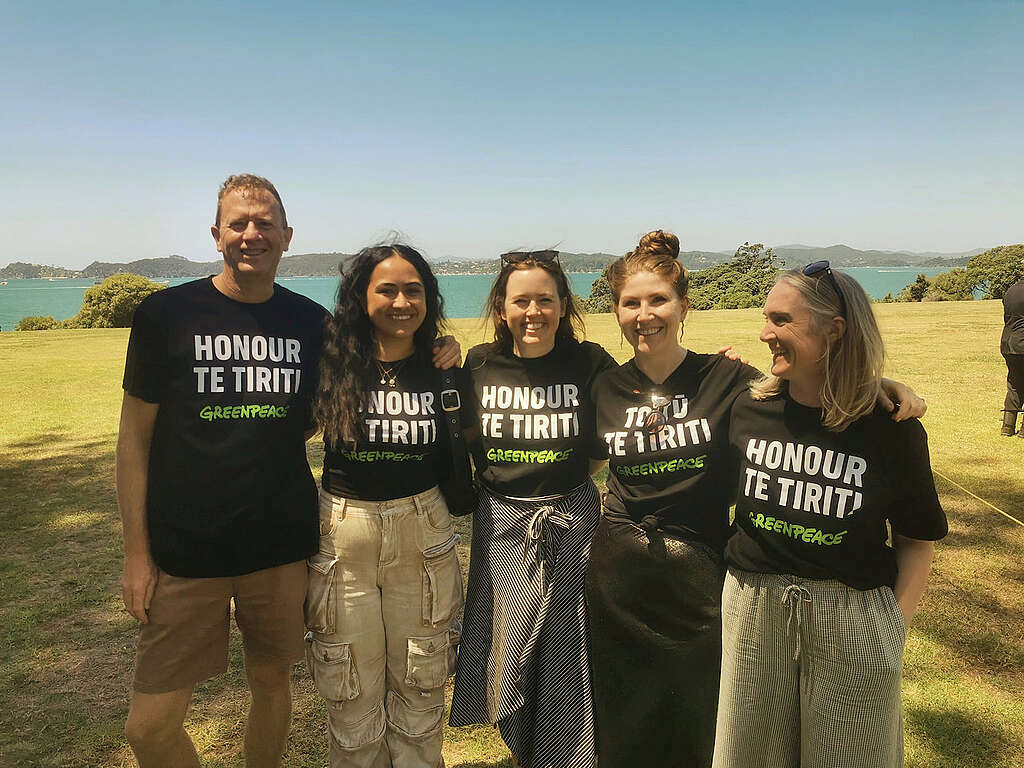
Our Te Tiriti o Waitangi Policy
Greenpeace Aotearoa recognises Te Tiriti o Waitangi signed in Te Reo Māori on 6 February 1840 as the foundation for the relationship between the Crown (and so the New Zealand Government) and the indigenous hapū of Aotearoa.
Greenpeace Aotearoa recognises that Te Tiriti o Waitangi affirmed the sovereignty of the tangata whenua, which has never been relinquished despite the violent colonisation of Aotearoa.
The articles of Te Tiriti o Waitangi broadly mean that:
- The Crown has the right to govern non Māori people throughout Aotearoa;
- The mana whenua hapū have tino rangatiratanga (absolute sovereignty) over their own people, land and resources;
- Māori people have two sets of citizenship – both within their own political framework and also as citizens under the New Zealand Government framework; and
- All spiritual beliefs and traditions must be respected, including tikanga.
Although the Crown has the key role in upholding the articles in Te Tiriti, organisations such as GPAo can honour the agreement by being cognisant of Te Tiriti and by respecting the tino rangatiratanga (sovereignty) of mana whenua hapū.
Values and Culture – Four Pou
In order to honour Te Tiriti and respect tino rangatiratanga, it is critical that Greenpeace Aotearoa work with hapū and iwi Māori in a way that honours tikanga Māori.
Consequently, Greenpeace Aotearoa commits to four pou, or core values, to help us navigate our work in Aotearoa. We commit to developing frameworks and processes that help reflect the pou of: respecting mana whenua, mana moana and mana tangata; respecting kaitiakitanga; understanding manaakitanga; and seeking kotahitanga, in our strategic and operational plans, processes and relationships.
These four pou are:
- Respecting mana whenua, mana moana, mana tangata – inherited authority over land; inherited authority over sea; and inherited status of the person. Mana whenua, mana moana, mana tangata acknowledges people from a specific location through whakapapa and their knowledge of that place.
- Respecting kaitiakitanga – whānau, hapū and iwi have an intergenerational responsibility to actively care for the environment.
- Understanding manaakitanga – reciprocity of kindness, respect, humility, responsible hospitality, caring for others and the environment.
- Seeking kotahitanga – unity of purpose and direction. It is demonstrated moving as one where everyone is encouraged to make a contribution, to have their say and then, together, to reach consensus.
Greenpeace’s Journey in Aotearoa
Greenpeace Aotearoa has come to this policy, its first Te Tiriti policy, via a journey through a range of campaign issues and relationships with iwi and hapū and the generosity, contribution and challenge from Māori staff, board members and allies over the past three decades.
The policy recognises that personal and organisational relationships with iwi and hapū on specific campaigns have been powerful and effective, but have been insufficient on their own to fully meet Greenpeace Aotearoa’s Te Tiriti commitments and to sustain enduring partnerships with iwi or hapū.
The policy has also been shaped by our reflection on the adequacy of the Greenpeace International global policy on working with indigenous peoples for our context here in Aotearoa.
A founding campaign for Greenpeace in Aotearoa was the campaign against French nuclear testing in the Pacific. Greenpeace worked with the Nuclear Free and Independent Pacific movement, including iwi allies, but never formally took a position on colonisation per se. As a result of that campaign, and of its location in Tāmaki Makaurau, Greenpeace Aotearoa held relationships with Ngāti Whātua.
After the bombing of the Rainbow Warrior and subsequent sinking of the vessel in Matauri Bay, a relationship was developed with Ngāti Kura at Matauri Bay. Greenpeace has visited the memorial site annually and met with Ngāti Kura regularly.
The Greenpeace Aotearoa forests, pulp and paper and toxics campaign in the 1980s and 1990s explicitly recognised Te Tiriti and built relationships with mana whenua in the Mataatua (Bay of Plenty) region while campaigning on the pulp mill pollution of the Tarawera River and with the SWAP (Sawmill Workers Against Pollution) group. The Rainbow Warrior visited the Mataatua area several times to support non-violent direct actions and public events that were developed in partnership with mana whenua.
In the late 1990s, Greenpeace Aotearoa established a new unit, Mana Tangata, to grow stronger links with communities and iwi. The unit worked with Ngāti Whātua to stop the dumping of waste in the Waitematā and with Ngāti Rangitihi, Ngāti Awa and Ngāti Tūwharetoa ki Kawerau against the continued contamination of the Tarawera River by Tasman Pulp and Paper.
From 2011, Greenpeace allied with Te Whānau-ā-Apanui to end deep sea oil drilling. These relationships were built on a common kaupapa and framework of partnership, and fostered by dedicating a senior campaigner to building relationships with hapū and iwi. This initial relationship was successful, with Petrobras abandoning their permit. As more companies took up block offers around the country, Greenpeace Aotearoa partnered with other affected iwi and hapū – most notably against Statoil in Te Tai Tokerau, again resulting in the companies withdrawal, Kaikōura with Ngāti Kuri/Ngāi Tahu versus Anadarko, Taranaki iwi and hapū, and Ngāti Kahungunu in Bay of Plenty (a relationship originally forged in joint opposition to the Ruataniwha dam). These relationships were integral to the ultimate success of this campaign in 2018.
Between 2017-19, the Greenpeace Aotearoa Board developed this policy through a series of conversations and workshops, with the goal of becoming a relevant, valued and socially and culturally responsive and responsible organisation. We recognise that becoming “Te Tiriti ready” requires courageous conversations and the willingness to persist even when things are uncomfortable or we fail and have to “step up” and take responsibility for mistakes. This policy is our commitment to taking the next step on the journey to our goal.
-
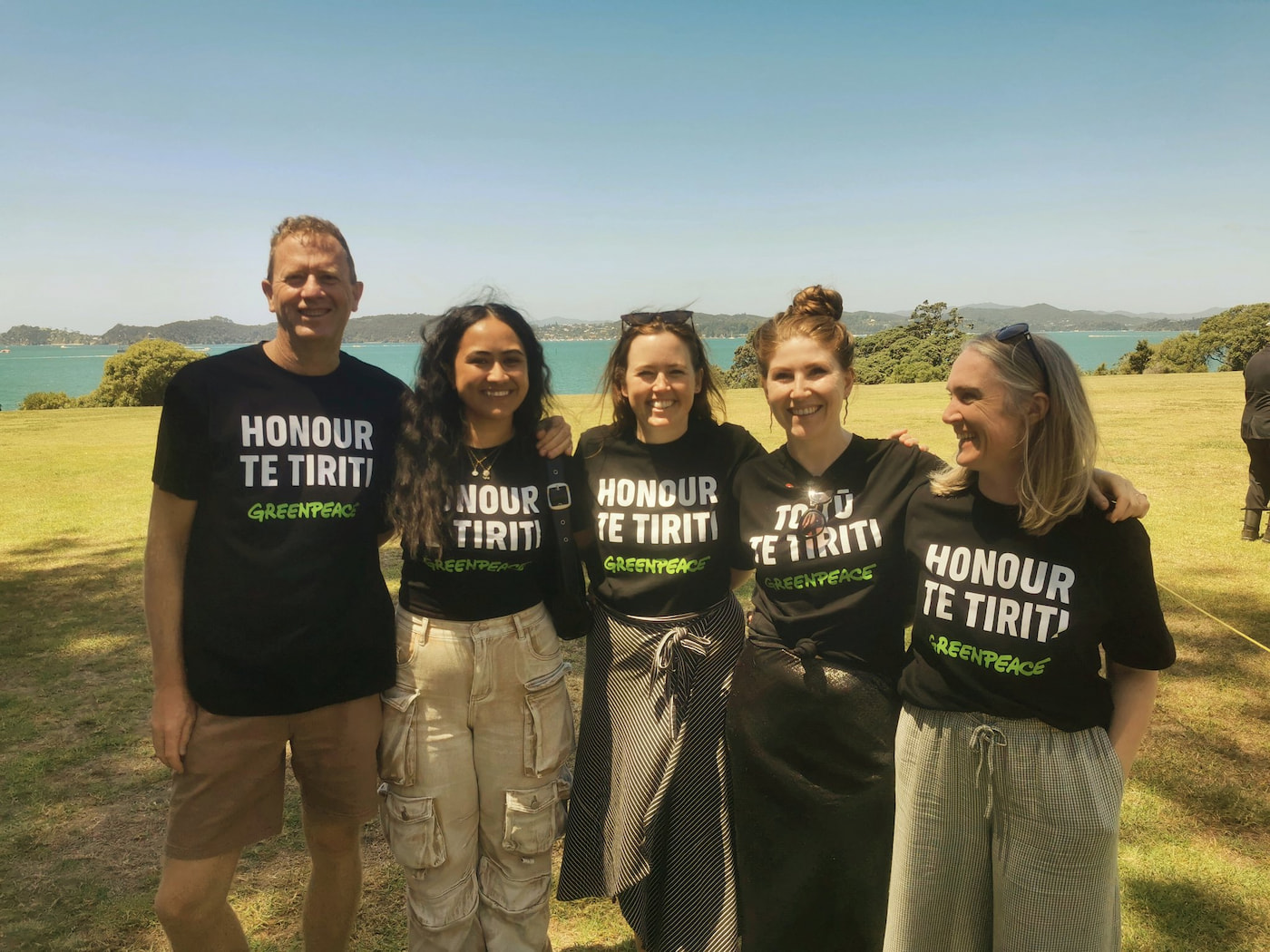
Standing for Te Tiriti o Waitangi
It was a privilege to be there with Greenpeace Aotearoa to honour Te Tiriti o Waitangi.
-
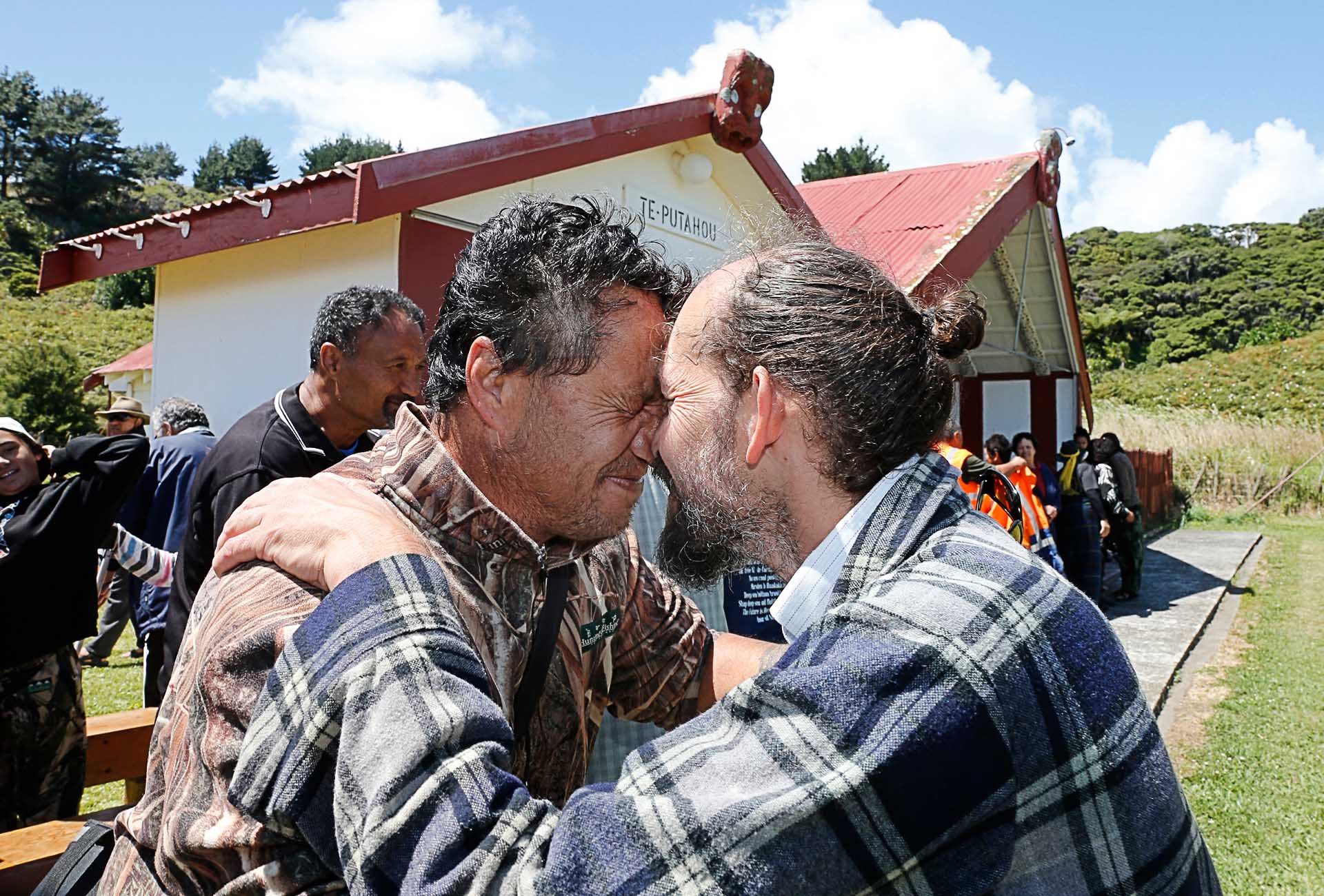
Greenpeace oil campaign: seven years in the wilderness
A photograph popped up on my Facebook feed recently, saying – “seven years ago today”. It was a shot of the crew from the Oil Free Seas flotilla being welcomed onto Kauaetangohia Marae at the isolated tip of the East Cape, where the rising sun first strikes our islands through the pure sea air. The…
-
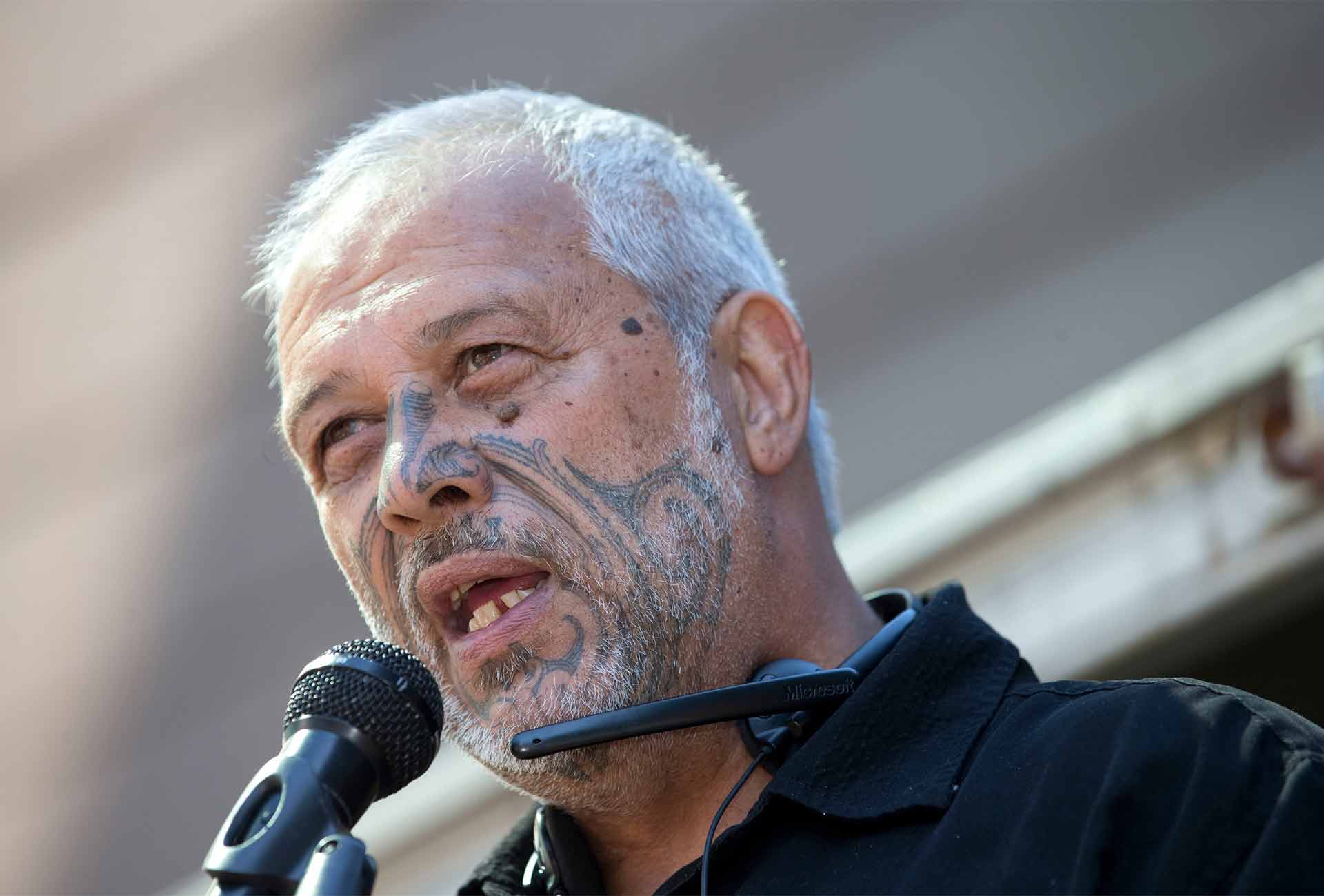
A view from Waitangi by Mike Smith
Over the last couple of days I’ve been getting calls from friends, colleagues and media organisations wanting to know what was happening at Waitangi this year. Here’s what I’ve been telling them.
-
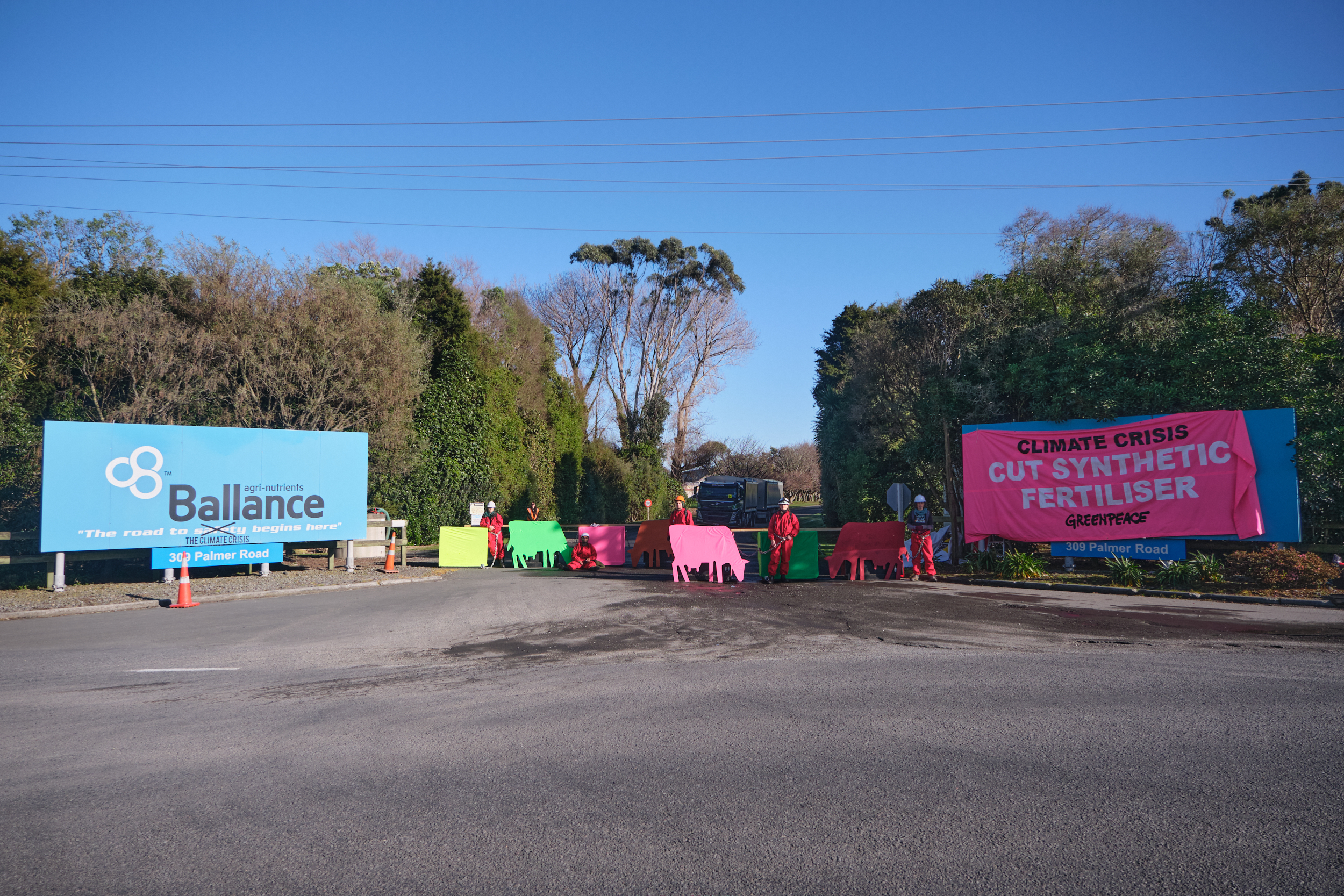
Greenpeace with several hapū of Ngāruahine appear in Court of Appeal tomorrow to challenge hydrogen expansion of fertiliser factory
Greenpeace, with several hapū of Ngāruahine, will be in the Court of Appeal in Wellington tomorrow at 10am to challenge the awarding of consent for hydrogen expansion of synthetic nitrogen…
-
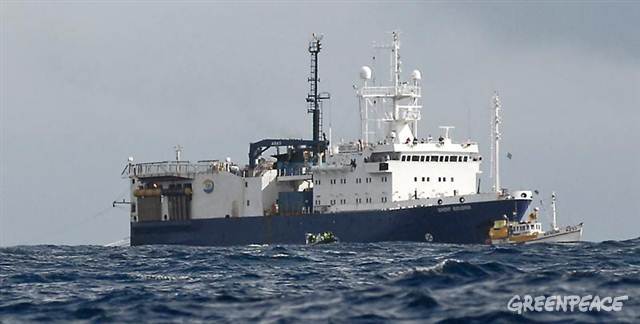
Iwi fishing boat disrupts oil survey ship
Today in the face of navy warship HMNZS Taupo, the crew of te Whānau ā Apanui’s fishing boat San Pietro went fishing at a safe distance in front of the deep sea oil survey ship, Orient Explorer. The longline with visible buoys was deployed within te Whānau ā Apanui ‘s customary fishing grounds.
-
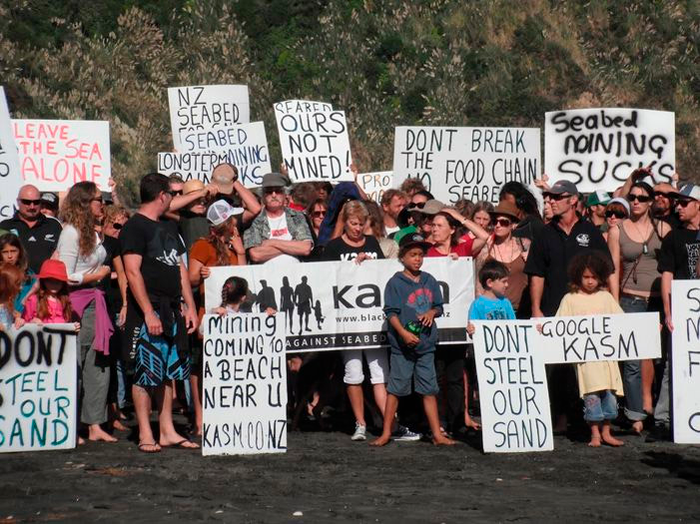
Seabed mining Court case a fight for the future of our precious oceans
JOINT PRESS RELEASE: The future of the South Taranaki Bight lies in the hands of the High Court next week, which will hear appeals against the Envionmental Protection Authority’s decision to grant a marine consent to Trans-Tasman Resources’ bid to dig up the seabed for its iron ore.
-
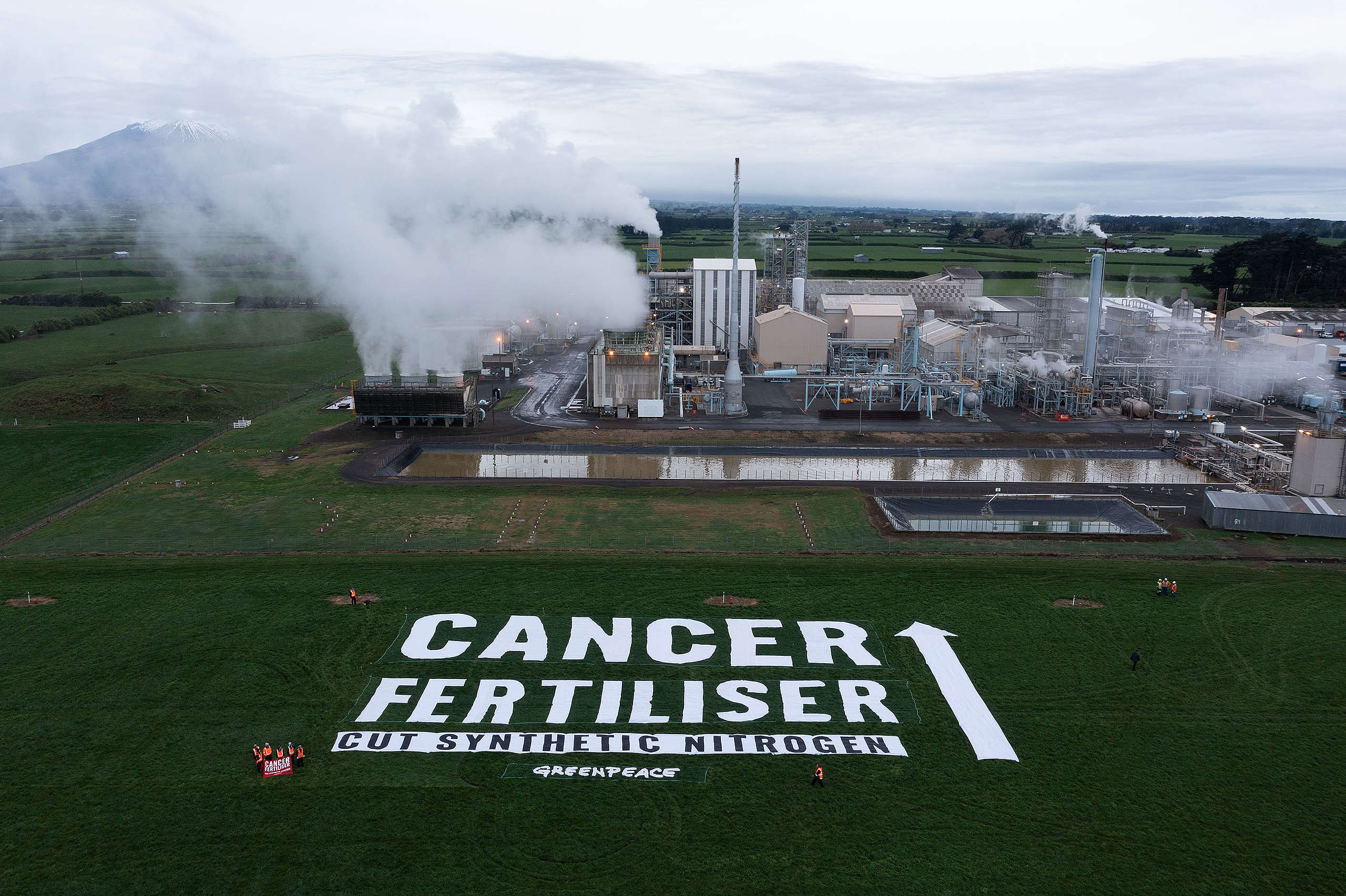
Greenpeace Appeals against Hiringa hydrogen-to-urea with Hapū backing
Greenpeace claims that the High Court erred in failing to find that the Consenting Panel’s decision to place no conditions on whether, when, and how the project transitioned from fertiliser feedstock production to hydrogen fuel production, was a breach of the Covid-19 Recovery Fast-Track Consenting Act.
-
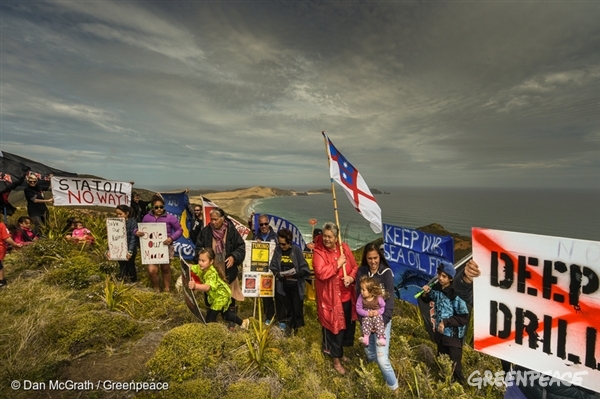
It’s time to push Statoil out for good
On Friday last week, New Zealand woke to the news that Norwegian oil giant, Statoil, was pulling the plug on its operations in Northland’s Reinga Basin.Although the company’s representatives were quick to claim the move came as a result of the low a probability of finding oil there, the sudden exit follows years of protest…
-

Huge win for the climate in Smith v Fonterra Supreme Court ruling
The Supreme Court has today ruled in favour of Northland iwi leader Mike Smith’s (Ngāpuhi, Ngāti Kahu) climate case continuing to trial. The case is against Fonterra and six other…
